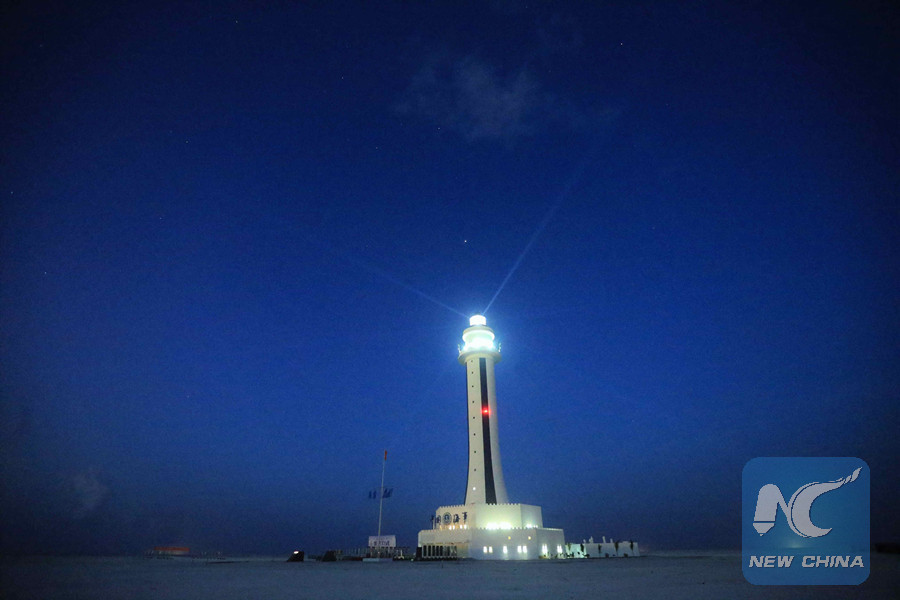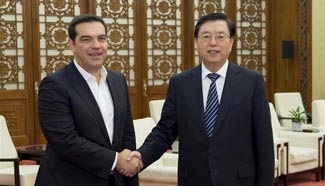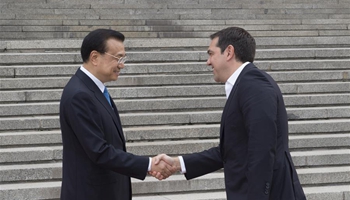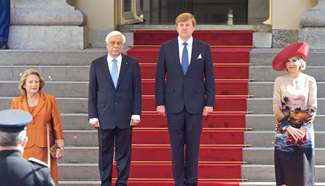
Photo taken on April 5, 2016 shows the lighthouse on Zhubi Reef of Nansha Islands in the South China Sea, south China. (Xinhua file photo)
ROME, July 4 (Xinhua) -- The South China Sea dispute between China and the Philippines suggest the attempt by the United States to contain China's role as regional and global power, an Italian expert said.
"The United States needs China to be economically strong, but it does not want China to develop further as a geopolitical actor," Domenico Moro, an economist and member of the political committee of Italy's Communist Refoundation party, told Xinhua in a recent interview.
"This is the background of the South China Sea tensions, and of the U.S. policies concerning the issue: the U.S. seems intent to contain China's rising role as regional and global power to preserve its ideological and cultural influence, and avoid a challenge to its hegemony," said Moro.
In January 2013, the Philippines unilaterally filed an arbitration case against China over the South China Sea dispute in the Permanent Court of Arbitration (PCA) in The Hague, the Netherlands.
China maintains the PCA has no jurisdiction over the case, which is in essence about territorial sovereignty and maritime delimitation, and insists the Philippines should abandon its arbitration request and return to bilateral negotiations to settle the issue.
The PCA is expected to announce its decision over the case soon.
A worrying side of the Philippine-China dispute is that it has been marked by increasing tensions in the South China Sea, with an intensifying activity of U.S. military aircraft and naval forces in the region, over the last months.
According to the expert, that would be part of an overall "aggressive approach" the United States and other Western powers have been showing towards various areas around the world in the last decades.
"The U.S. has been going through a decline in its economic power, and even more so after the global financial crisis of 2007-2008 hit the capitalistic system hard," the economist explained.
"During this declining phase, as every global power, it suffers the rising of other major actors, and China is indeed one of them," said the expert.
At the same time, the focus of the U.S. foreign strategy is gradually shifting from central Asia, the Middle East, and the Mediterranean area to the Asian region, according to him.
"The U.S. government wants to destine more and more resources to the Asian region, since it is aware its biggest competitor is indeed China," Moro said.
Yet, the expert believed such confrontational approach should not meet with a specular one from the Chinese side.
"China has indeed the right to defend its national interests, and (to do so) it must avoid falling into the confrontation trap the U.S. was able to set for the former Soviet Union," he explained.
The Soviet Union tried to win such direct confrontation, and drained much of its resources focusing on the nuclear arms race during the Cold War, and the 1979-1989 Afghan War.
"China should keep away from the same hook, and, while defending its legitimate interests, keep promoting its domestic economic growth," Moro suggested.
"Keeping a strong commitment for further domestic economic development and improvement of the living standards of its people is the best way to respond to the U.S. global challenge, because China's strength lies in its stability," said the expert.











